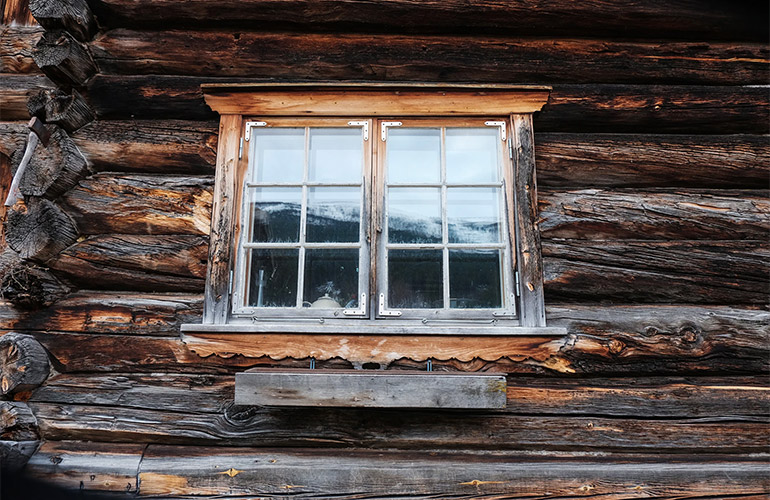SHTF: Should I Bug-In or Bug-Out?

“Bug-in or bug-out?” That seems to be the age-old question in discussions about prepping for SHTF, be it a temporary natural disaster or something much worse.
I often see this topic come up on the internet and with people I talk to, particularly in conversations about putting together a bug-out bag. If society is breaking down or some disasters about to strike, or already has struck, should you bug in where you already live? Or should you bug out to a remote location further away from population centers or anything else that might be considered a threat to your well-being.
There’s no one simple answer to that question, but I’ll try to break it down. Whenever possible, if the circumstances allow for bugging in, my opinion is that this is 100% the smarter way to go.
When Bugging Out Makes Sense
But there are a lot of caveats to that, and circumstances that might not make it possible or prudent. The first thing that you have to consider before you can really answer the question “bug in or bug out” is what is the event that you’re facing that’s causing you to have to make that decision? And accordingly, is bugging in physically possible? If we’re talking about massive wildfires that are threatening your home, bugging in obviously isn’t exactly viable. Same thing with a hurricane that’s headed your way, any natural disaster that threatens the actual location in which you would “bug”. In such a case, that pretty much answers the question. You can’t stay there because it’s an immediate and severe threat to your safety.
Because of that, you have to have a plan for what you’re going to do if you can’t stay put. This includes planning for how you’ll pack up your vehicles, where you’re going to go, who’s going to help you, and who might you need to help.
Natural disasters are the most likely and most common situation that could prompt a decision between staying put or getting out of Dodge. But there are other scenarios which any preparedness-minded person ought to think about. There could be a disruption in the supply lines. There could be a breakdown of basic municipal services. It could last long enough that common courtesy and even rule of law start to come unraveled.
Urban vs Suburban/Rural
No rule of law (NROL) a big concern that some people think about when they think about prepping. If you live in a tightly-packed environment, such as the middle of a dense city or a large apartment building, you might not be in the best circumstance or situation to stay where you’re at. In such a case, bugging out might make a lot more sense even for a moderate emergency situation. Besides being packed tightly among lots of other people who are all competing for resources, you can’t really store a lot in an apartment. You may be able to store the basics to get through a power outage that lasts a short while, but you’re not going to be able to stay put there for any serious amount of time. Add to that all those strangers living on every side of you, having an alternative location in a more sparsely-packed setting is a great idea if at all possible.
As for people who live in the suburbs or in a rural area, bugging in makes so much more sense. You’ve got all your stuff right there with you! You have the the convenience, the means, and the opportunity to store and stock food, supplies, water, and defenses. Not only that, but you’re effectively living your preps on a daily basis. Maybe your house is outfitted with generator power or solar. You’ve got more space and opportunity to establish a great bug-in location.
Not only that, but your neighbors (aka potential threats and/or competition) are also much more capable of being outfitted for emergency survival. That means they are less likely to be threats and more likely to be assets than if you lived in a densely-packed environment.
Leaving it All Behind
My biggest problem with the idea of immediately bugging out as soon as trouble starts to brew is that all the time and resources put into establishing your “base of operations” is basically thrown away the moment you leave. Those are huge advantages that you are going to abruptly abandon. All the supplies, all the gear, all the food… useless! You can grab a little on your way out, but potentially months or years of emergency preparations become out of your reach, and therefore worthless. And if you’re going to be traveling with a spouse, children, pets any other people, that’s a lot of people to move, organize, and supply.
Unless you’re going to a bugout retreat or a location that’s already pretty well stocked or outfitted with what you might need, you’re increasing your risk and difficulty by leaps and bounds by leaving your “base”. You’re heading into the unknown! And even if you do have a retreat that you visit once in a while, such as a hunting cabin or a vacation home way outside of town, you don’t necessarily know what State it’ll be in when you get there. Hopefully it’s just the way you left it, but it’s all too common that opportunists and criminals burglarize or squat in vacation homes because they’re empty for so much time out of the year. I don’t mean to discourage having and utilizing a well-supplied bugout location. These are just things that are certainly worth considering and staying conscious of.
I’ll Just Head to the Woods!
One ridiculous thing that I see frequently pop up in prepping discussions is this notion that when when SHTF, people are going to bug out to “the woods”. I think anyone who thinks about this for any amount of time will see why this is just absolutely unrealistic. It’s as ridiculous as it is reckless. If you and a hundred thousand other people say “I’m going to head out to these particular woods that I’ve spent some limited time hunting or camping in,” not only are you heading into the wilderness expecting to live off of that land to some degree, but you’re going have a lot of competition as well.
How many of you will it take before the deer and the rabbits and the squirrels in that area are completely hunted out? Are you going to be competing for the same freshwater source? The same firewood source? I’s not realistic unless you own property that is wooded, or wilderness that you pretty much already live amongst. And even if you do own wooded land, you might find people trying to set up shop thinking that they’re going to live off your land. Lastly, it’s pretty absurd to think that the average suburban or city dweller is going to show up to the middle of the woods with their SUV, unpack their kids and their dog and suddenly become the Swiss Family Robinson. They’re going to be very hungry, cold, and dehydrated very quickly unless they are already serious woodsmen and/or survivalists. Every minute of the day and night will be a struggle in very significant ways.
when I go camping in the woods, I bring whatever I need for the amount of time I plan to be there. As soon as I start to run out of stuff, it’s probably time to get back to my house. If you head out there as a “bug out” solution, that’s no longer an option because there is no such thing as going to a store or just heading back home. As soon as you abandon your home, you’re leaving it open to anything. If you stayed there, you’d have the the presence and the means to defend it. Heck, just by your being there it would be a deterrent for most opportunists who would want to squat or even just see what resources that you might have left behind.
In Summary…
To recap: If your home is safe from the disaster that’s that’s impending, be it weather or otherwise, bugging in makes sense. If you’re in a location that you can realistically prep with supplies, defenses, water, and food, bugging in makes sense. If you don’t have an amazing bug-out retreat in the mountains that you somehow inexplicably constructed without anybody knowing about it, bugging in makes sense.

